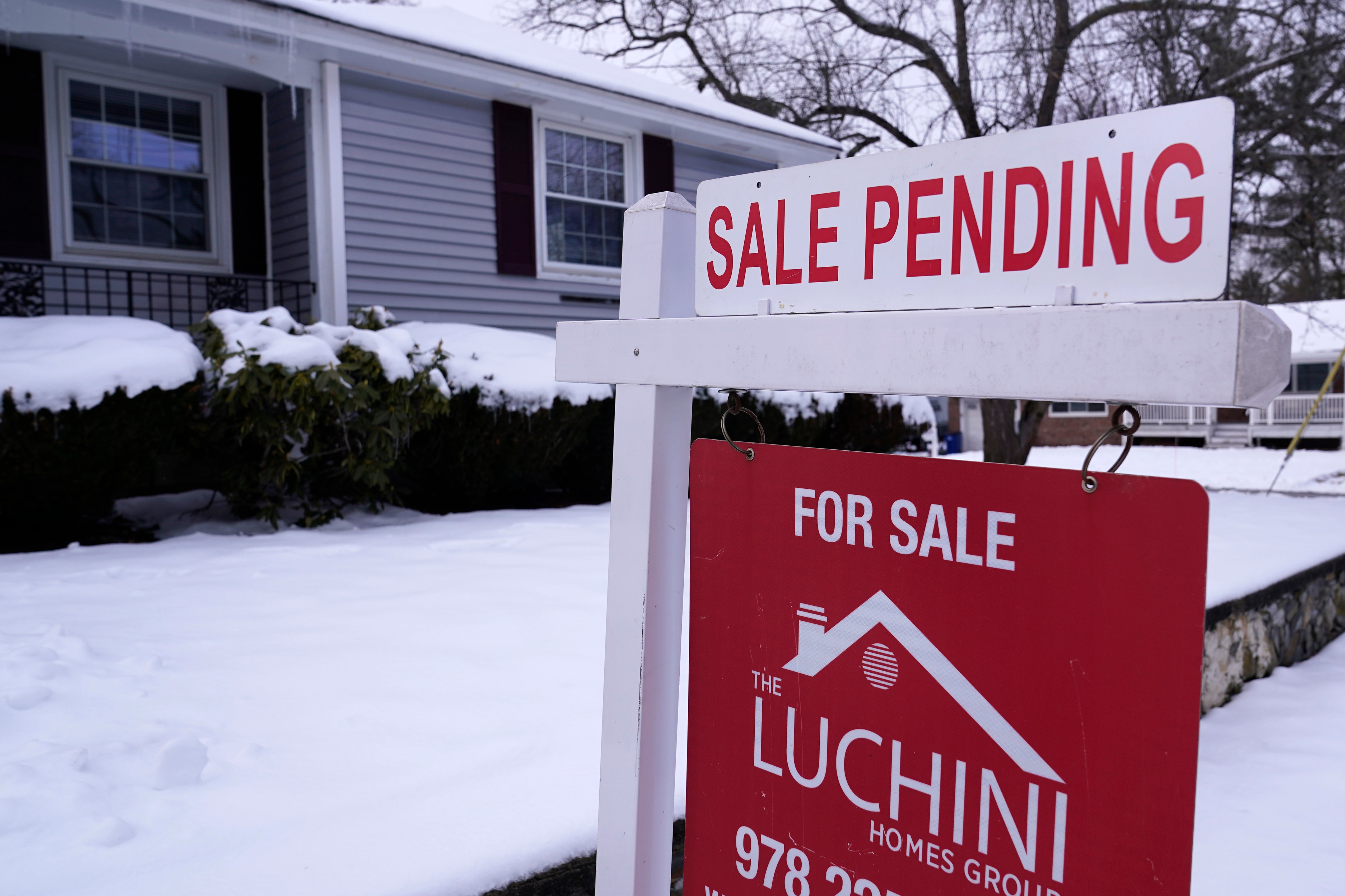Average long-term US mortgage rate hits 3-month high
The average long-term U.S. mortgage rate hit a three-month high this week, reflecting higher Treasury yields and expectations that the Federal Reserve will continue to raise its benchmark rate and keep it there until inflation recedes

Your support helps us to tell the story
From reproductive rights to climate change to Big Tech, The Independent is on the ground when the story is developing. Whether it's investigating the financials of Elon Musk's pro-Trump PAC or producing our latest documentary, 'The A Word', which shines a light on the American women fighting for reproductive rights, we know how important it is to parse out the facts from the messaging.
At such a critical moment in US history, we need reporters on the ground. Your donation allows us to keep sending journalists to speak to both sides of the story.
The Independent is trusted by Americans across the entire political spectrum. And unlike many other quality news outlets, we choose not to lock Americans out of our reporting and analysis with paywalls. We believe quality journalism should be available to everyone, paid for by those who can afford it.
Your support makes all the difference.The average long-term U.S. mortgage rate hit a three-month high this week, reflecting higher Treasury yields and expectations that the Federal Reserve will continue to raise its benchmark rate and keep it there until inflation recedes.
Mortgage buyer Freddie Mac reported Thursday that the average on the benchmark 30-year rate rose to 6.65% from 6.5% last week. The average rate a year ago was 3.76%.
The average long-term rate reached a two-decade high of 7.08% in the fall as the Fed continued to raise its key lending rate in a bid to cool the economy and quash persistent, four-decade high inflation.
Rates came down this winter as it appeared inflation was steadily declining. But recent economic data reveal a still-hot economy and stubborn inflation. The recent rise in mortgage couldn't come at worse time for the slumping housing market, on the verge of its spring buying season.
At its first meeting of 2023 in February, the Fed raised its benchmark lending rate by another 25 basis points, its eighth increase in less than a year. That pushed the central bank’s key rate to a range of 4.5% to 4.75%, its highest level in 15 years.
Fed Chair Jerome Powell noted at the time that some measures of inflation have eased, but appeared to suggest that he foresees two additional quarter-point rate hikes this year. Minutes from that meeting released last week mostly corroborated that view, but the reemergence of higher prices along with some strong economic reports in recent weeks has some analysts forecasting more than two rate increases this year, including perhaps another half-point increase, to a range of 5.25% to 5.5%.
While the Fed’s rate hikes do impact borrowing rates across the board for businesses and families, rates on 30-year mortgages usually track the moves in the 10-year Treasury yield, which lenders use as a guide to pricing loans. Investors’ expectations for future inflation, global demand for U.S. Treasurys and what the Federal Reserve does with interest rates can also influence the cost of borrowing for a home.
In recent days, the 10-year Treasury yield settled back above 4% for the first time since November.
The big rise in mortgage rates during the past year has battered the housing market, with sales of existing homes falling for 12 straight months to the slowest pace in more than a dozen years. January’s sales cratered by nearly 37% from a year earlier, the National Association of Realtors reported on Tuesday.
For all of 2022, NAR reported last month that existing U.S. home sales fell 17.8% from 2021, the weakest year for home sales since 2014 and the biggest annual decline since the housing crisis began in 2008.
Higher rates can add hundreds of a dollars a month in costs for homebuyers, on top of already high home prices. That's pushed many prospective buyers, especially first-timers, to the sidelines.
Higher rates also stifle homeowners seeking to move or upgrade their living space as they don't want take on a higher rate than they are currently locked into.
The rate for a 15-year mortgage, popular with those refinancing their homes, rose this week to 5.89% from 5.76% last week. It was 3.01% one year ago.
——-